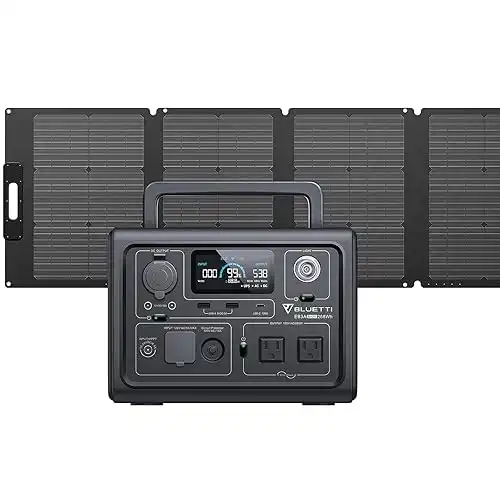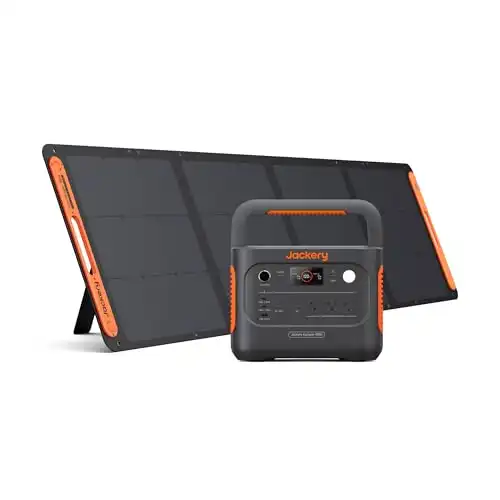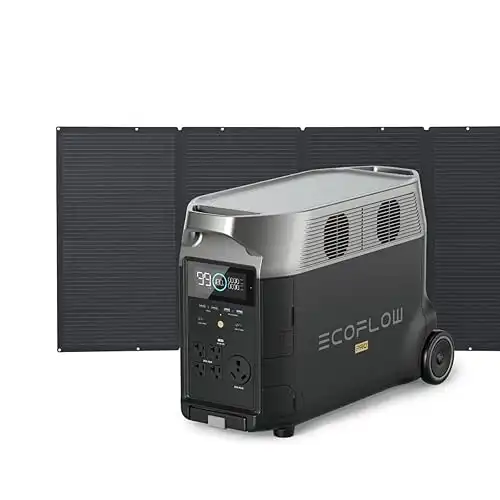Find the Best Solar Kit for Your Power Needs – It’s as Simple as 1-2-3!
Don’t worry, finding the perfect DIY solar kit or solar power kit is easier than you think. With our simple 3-step process, you’ll have all the answers you need. From calculating your sunlight hours to determining your daily energy usage, we break it all down for you with easy-to-use charts and calculators. Let’s get started!
Step 1: Find Your Average Daily Sunlight Hours
Your location plays a crucial role in how much solar energy you can generate. Use the chart below to find the average sunlight hours for your region. The more sunlight hours you get, the more energy you can harness for your solar kit.
Average Daily Sunlight Hours Chart (Tap to Open)
State-by-State Sunlight Hours Data
Average Daily Sunlight Hours for Major Cities in Each State
| State | City 1 | Avg. Sunlight Hours (h) | City 2 | Avg. Sunlight Hours (h) | City 3 | Avg. Sunlight Hours (h) |
|---|---|---|---|---|---|---|
| Alabama | Birmingham | 5.4 | Montgomery | 5.3 | Mobile | 5.5 |
| Alaska | Anchorage | 3.7 | Fairbanks | 3.5 | Juneau | 3.2 |
| Arizona | Phoenix | 6.1 | Tucson | 6.2 | Flagstaff | 5.8 |
| Arkansas | Little Rock | 5.2 | Fayetteville | 5.1 | Fort Smith | 5.3 |
| California | Los Angeles | 6.5 | San Francisco | 6.0 | San Diego | 6.3 |
| Colorado | Denver | 5.9 | Colorado Springs | 6.1 | Boulder | 5.8 |
| Connecticut | Hartford | 4.0 | Bridgeport | 4.1 | New Haven | 4.2 |
| Delaware | Wilmington | 4.3 | Dover | 4.2 | Newark | 4.4 |
| District of Columbia | Washington D.C. | 4.4 | – | – | – | – |
| Florida | Miami | 5.7 | Orlando | 5.5 | Tampa | 5.6 |
| Georgia | Atlanta | 5.4 | Savannah | 5.5 | Augusta | 5.6 |
| Hawaii | Honolulu | 6.0 | Hilo | 5.8 | Kailua | 5.9 |
| Idaho | Boise | 5.7 | Idaho Falls | 5.5 | Pocatello | 5.6 |
| Illinois | Chicago | 4.5 | Springfield | 4.7 | Peoria | 4.6 |
| Indiana | Indianapolis | 4.6 | Fort Wayne | 4.4 | Evansville | 4.7 |
| Iowa | Des Moines | 4.8 | Cedar Rapids | 4.7 | Davenport | 4.6 |
| Kansas | Wichita | 5.5 | Overland Park | 5.4 | Kansas City | 5.6 |
| Kentucky | Louisville | 5.0 | Lexington | 4.9 | Bowling Green | 5.1 |
| Louisiana | New Orleans | 5.6 | Baton Rouge | 5.5 | Shreveport | 5.4 |
| Maine | Portland | 4.0 | Bangor | 3.9 | Lewiston | 4.1 |
| Maryland | Baltimore | 4.2 | Frederick | 4.3 | Annapolis | 4.4 |
| Massachusetts | Boston | 4.2 | Worcester | 4.1 | Springfield | 4.0 |
| Michigan | Detroit | 4.1 | Grand Rapids | 4.0 | Lansing | 4.2 |
| Minnesota | Minneapolis | 4.7 | St. Paul | 4.6 | Rochester | 4.5 |
| Mississippi | Jackson | 5.4 | Gulfport | 5.6 | Hattiesburg | 5.5 |
| Missouri | Kansas City | 5.3 | St. Louis | 5.2 | Springfield | 5.1 |
| Montana | Billings | 5.7 | Missoula | 5.5 | Great Falls | 5.6 |
| Nebraska | Omaha | 5.2 | Lincoln | 5.3 | Bellevue | 5.1 |
| Nevada | Las Vegas | 6.2 | Reno | 6.0 | Carson City | 5.9 |
| New Hampshire | Manchester | 4.0 | Nashua | 4.1 | Concord | 4.2 |
| New Jersey | Newark | 4.2 | Jersey City | 4.3 | Paterson | 4.1 |
| New Mexico | Albuquerque | 6.3 | Santa Fe | 6.2 | Las Cruces | 6.1 |
| New York | New York City | 4.2 | Buffalo | 4.0 | Albany | 4.1 |
| North Carolina | Charlotte | 5.5 | Raleigh | 5.6 | Asheville | 5.4 |
| North Dakota | Fargo | 4.8 | Bismarck | 4.7 | Grand Forks | 4.6 |
| Ohio | Columbus | 4.5 | Cleveland | 4.4 | Cincinnati | 4.6 |
| Oklahoma | Oklahoma City | 5.6 | Tulsa | 5.5 | Norman | 5.4 |
| Oregon | Portland | 4.0 | Salem | 4.1 | Eugene | 4.2 |
| Pennsylvania | Philadelphia | 4.3 | Pittsburgh | 4.2 | Allentown | 4.1 |
| Puerto Rico | San Juan | 6.0 | – | – | – | – |
| Rhode Island | Providence | 4.0 | Warwick | 4.1 | Cranston | 4.0 |
| South Carolina | Charleston | 5.5 | Columbia | 5.6 | Greenville | 5.4 |
| South Dakota | Sioux Falls | 4.7 | Rapid City | 4.9 | Aberdeen | 4.6 |
| Tennessee | Nashville | 5.3 | Memphis | 5.4 | Knoxville | 5.2 |
| Texas | Dallas | 5.3 | Houston | 5.5 | Austin | 5.8 |
| Utah | Salt Lake City | 5.9 | Provo | 6.0 | Ogden | 5.8 |
| Vermont | Burlington | 3.9 | Montpelier | 4.0 | Rutland | 4.1 |
| Virginia | Richmond | 4.5 | Virginia Beach | 4.7 | Norfolk | 4.6 |
| Washington | Seattle | 3.8 | Spokane | 4.1 | Tacoma | 4.0 |
| West Virginia | Charleston | 4.3 | Huntington | 4.2 | Morgantown | 4.1 |
| Wisconsin | Milwaukee | 4.4 | Madison | 4.5 | Green Bay | 4.6 |
| Wyoming | Cheyenne | 5.5 | Casper | 5.6 | Laramie | 5.4 |
Step 2: Calculate Your Daily Energy Consumption
Enter the devices you plan to power and how long you’ll use them each day. The calculator will total your daily energy consumption in kWh and help you determine the right size solar generator.
Energy Usage Calculator (Tap to Open)
Energy Usage Calculator
Enter the number of hours you use each appliance daily to calculate your total energy consumption in kilowatt-hours (kWh).
Step 3: Determine the Right Solar Generator Kit
Enter your daily energy consumption and sunlight hours to calculate which solar generator size—small, medium, or large—fits your needs. Play around with different device combinations to get a sense of how much power you’ll require.
Solar Kit Calculator (Tap to Open)
Solar Kit Calculator
Determine the solar kit capacity you need based on your daily energy consumption and sunlight availability.
Calculate Your Solar Kit Size
Figuring out the right generator size can often feel overwhelming. But don’t worry, our chart and calculators simplify the process. Play around with different device combinations to see what fits your needs. Below, we’ve listed our top recommended kits in small, medium, and large sizes. These are excellent options for off-grid living, emergency power, or RV trips.
While there are other brands available on Amazon, these kits consistently top our list for reliability and performance. Feel free to explore more options if you have unique needs, but you can’t go wrong with these recommendations.
Your Top Solar Generator Kit Options
Based on your calculated power needs, here are the best solar generator kits for small, medium, and large energy requirements. Whether for camping, off-grid living, or home backup, these kits will provide reliable power.
Small:
BLUETTI Solar Generator EB3A with 120W Solar Panel
For energy needs up to 1.5 kW, the BLUETTI Solar Generator EB3A with 120W Solar Panel is the perfect choice for small power requirements, such as camping trips or essential device backup during outages.
 BLUETTI EB3A Solar Generator Kit with 120W Solar Panel | 268Wh Portable Power Station for Backup & Off-Grid Use
BLUETTI EB3A Solar Generator Kit with 120W Solar Panel | 268Wh Portable Power Station for Backup & Off-Grid Use This BLUETTI EB3A solar generator kit includes a 120W solar panel and a 268Wh portable power station. Ideal for emergency backup, camping, and off-grid use, it features 2 AC outlets (600W, 1200W surge) and a reliable LiFePO4 battery. Perfect for charging devices, running small appliances, and staying powered during outages.
Check Out the Video Review:
Watch the BLUETTI Solar Generator in ActionMedium:
Jackery Solar Generator 1000 v2 with 200W Solar Panel
If your energy needs fall between 1.5-3.0 kW, the Jackery Solar Generator 1000 v2 with 200W Solar Panel is ideal for longer off-grid trips or as a reliable home backup.
 Jackery Solar Generator 1000 v2 with 200W Solar Panel | 1070Wh LiFePO4 Battery for Off-Grid, RV, and Backup Power
Jackery Solar Generator 1000 v2 with 200W Solar Panel | 1070Wh LiFePO4 Battery for Off-Grid, RV, and Backup Power The Jackery Solar Generator 1000 v2 with a 200W solar panel provides 1070Wh of reliable, portable power. Perfect for off-grid living, RV trips, and emergency backup, it features a LiFePO4 battery and 1500W AC output, charging from 0 to 100% in just 1 hour. This durable power station supports everything from refrigerators to small devices, making it an ideal solution for outdoor enthusiasts and emergency preparedness.
Check Out the Video Review:
Watch the Jackery Solar Generator in ActionLarge:
EcoFlow Delta Pro Solar Generator with 400W Solar Panel
For energy needs above 3.0 kW, the EcoFlow Delta Pro Solar Generator with 400W Solar Panel is the best choice for high power consumption, whether off-grid or for long-term backup.
 EF ECOFLOW Delta Pro Solar Generator 3600Wh with 400W Solar Panel | Home Backup, Off-Grid, and Emergency Power
EF ECOFLOW Delta Pro Solar Generator 3600Wh with 400W Solar Panel | Home Backup, Off-Grid, and Emergency Power The EF ECOFLOW Delta Pro Solar Generator offers a powerful 3600Wh capacity with a 400W portable solar panel, perfect for home backup, off-grid living, RV setups, and emergency power. With 5 AC outlets, fast charging, and 23% high solar efficiency, this robust generator powers everything from refrigerators to heavy-duty tools. Whether preparing for emergencies or living off the grid, this solar power station delivers reliable, high-capacity performance for any situation.
Check Out the Video Review:
Watch the EcoFlow Delta Pro in ActionFrequently Asked Questions About Solar Generators
Learn more about solar generators, how they work, and how to choose the right kit for your off-grid or emergency power needs.
FAQs (Tap to Open)
What is a solar generator, and how does it work?
A solar generator collects energy from the sun via solar panels and stores it in a battery. It converts that energy into usable AC or DC power for homes, RVs, or during emergencies.
What is the best DIY solar kit for home use?
The best DIY solar kit for home use depends on your power needs. Popular options include the Jackery Solar Generator 1000 v2 and BLUETTI EB3A, known for their ease of setup and reliable power output.
How do I choose the right solar power kit for my RV?
To choose the right solar power kit for your RV, consider your energy consumption, available space for solar panels, and battery capacity. A portable kit like the EF ECOFLOW Delta Pro is ideal for RV setups.
Can solar kits be used for off-grid living?
Yes, solar kits are perfect for off-grid living. With options like the EF ECOFLOW Delta Pro, you can power homes, cabins, and RVs with renewable energy without relying on the grid.
How long does it take to charge a solar generator?
Charging time varies by model. For example, the Jackery Solar Generator 1000 v2 can charge from 0 to 100% in just 1 hour when using fast solar charging with its 200W solar panel.
What are the benefits of using a LiFePO4 battery in a solar generator?
LiFePO4 batteries offer longer life cycles, enhanced safety, and reliable energy storage. Solar generators like the BLUETTI EB3A and Jackery 1000 v2 use LiFePO4 for durability and performance.
Can I run household appliances with a solar generator?
Yes, you can run household appliances like refrigerators, lights, and even power tools with a solar generator. Models like the EF ECOFLOW Delta Pro offer up to 3600Wh of capacity to power large devices.
What is the difference between a solar panel kit and a solar generator kit?
A solar panel kit typically includes only the panels, while a solar generator kit combines both the solar panels and a power station, such as the Jackery Solar Generator 1000 v2, which includes everything needed for portable power.
Are solar kits a good option for emergency backup power?
Yes, solar kits are an excellent option for emergency backup power. They provide renewable, reliable energy and can power essential devices like lights, phones, and refrigerators during an outage.
How efficient are portable solar panels in solar kits?
Portable solar panels in solar kits, such as the 400W panel in the EF ECOFLOW Delta Pro, typically offer high solar efficiency rates of up to 23%, converting sunlight into usable energy quickly and effectively.
Can solar kits power my home during a blackout?
Yes, solar kits with battery storage, like the Jackery Solar Generator 1000 v2, can provide power during a blackout. They can run essential appliances, lights, and more, ensuring you’re prepared for outages.
What size solar panel do I need for my solar kit?
The size of the solar panel depends on your energy consumption. A 200W solar panel, like the one included with the Jackery 1000 v2, can efficiently charge a solar generator for moderate energy needs.
How portable are solar power kits?
Many solar power kits, such as the BLUETTI EB3A, are lightweight and portable, making them easy to transport for camping trips, RV use, or emergency situations.
What is the lifespan of a solar generator?
The lifespan of a solar generator depends on the type of battery. Solar generators with LiFePO4 batteries, like the Jackery 1000 v2, often last longer, offering thousands of charging cycles before needing replacement.
How do I install a solar kit at home?
Most DIY solar kits come with easy-to-follow instructions for installation. You’ll need to position the solar panels in a sunny area and connect them to the power station or battery for optimal energy collection. Learn more about installing solar kits here.
Can I expand my solar kit in the future?
Yes, many solar kits, such as the EF ECOFLOW Delta Pro, are expandable. You can add additional solar panels or batteries to increase your energy capacity as your needs grow.
Are solar kits affected by weather conditions?
Solar kits can still generate power in cloudy or rainy conditions, though efficiency may be reduced. High-efficiency solar panels, like the 400W panel with the EF ECOFLOW Delta Pro, help mitigate this impact.
What is the difference between a LiFePO4 battery and a regular battery in solar generators?
LiFePO4 batteries are more durable, offer longer lifespans, and are safer compared to traditional batteries. They are used in high-performance solar generators like the BLUETTI EB3A.
How do I maintain my solar kit for optimal performance?
Maintaining your solar kit involves cleaning the solar panels regularly, checking the battery health, and ensuring all connections are secure. Learn more about solar kit maintenance here.
What happens if my solar kit doesn’t generate enough power?
If your solar kit isn’t generating enough power, it could be due to insufficient sunlight or undersized solar panels. Upgrading to a larger panel, like a 400W solar panel, or increasing battery capacity may solve the issue.
Can solar kits run air conditioning units?
Yes, certain high-capacity solar kits, like the EF ECOFLOW Delta Pro, can run air conditioning units. However, you’ll need a large battery capacity and powerful solar panels to handle the energy load.
What is the most efficient solar generator for off-grid living?
The most efficient solar generator for off-grid living depends on your energy needs, but models like the Jackery Solar Generator 1000 v2 and EF ECOFLOW Delta Pro offer high efficiency and reliable power storage for off-grid setups.
Can I use a solar kit to charge electric vehicles?
While some solar kits can charge electric vehicles, it depends on the power capacity of the generator. High-capacity models like the EF ECOFLOW Delta Pro may be able to charge smaller electric vehicles under the right conditions.
Are solar kits environmentally friendly?
Yes, solar kits provide clean, renewable energy, reducing your reliance on fossil fuels and minimizing your carbon footprint. They are a great option for eco-conscious consumers.
Can I combine multiple solar kits for more power?
Yes, some solar kits, like the Jackery Solar Generator 1000 v2, are designed to be expandable. You can add more solar panels or battery storage to increase your power capacity for larger energy needs.
What happens if my solar panels are damaged?
If your solar panels are damaged, you may notice a reduction in energy output or efficiency. It’s important to inspect your panels regularly for damage and replace them if necessary to ensure optimal performance.
How do solar generators compare to gas-powered generators?
Solar generators, like the BLUETTI EB3A, provide clean, quiet energy without the emissions or noise of gas-powered generators. While gas generators may offer more immediate power, solar generators are more sustainable and eco-friendly.
How long will a solar generator last during an outage?
The duration a solar generator will last during an outage depends on its battery capacity and the energy demand of the devices you’re powering. High-capacity models, such as the EF ECOFLOW Delta Pro, can provide power for extended periods.
Are there government incentives for purchasing solar kits?
In many regions, government incentives like tax credits and rebates are available for solar kit purchases, helping to reduce the overall cost of installation and equipment.
What types of devices can I power with a solar kit?
A solar kit can power a wide range of devices, including lights, phones, laptops, refrigerators, and small appliances. Larger generators, like the EF ECOFLOW Delta Pro, can even power heavier equipment like power tools and HVAC systems.
How do I know which solar kit is right for me?
Choosing the right solar kit depends on your energy needs, available sunlight, and budget. Kits like the Jackery Solar Generator 1000 v2 offer great balance between power and portability for various applications.
Do solar kits work in winter or cloudy conditions?
Yes, solar kits work in cloudy and winter conditions, although their efficiency may be reduced. High-efficiency panels, such as those found in the EF ECOFLOW Delta Pro, can still generate power even in less-than-ideal weather.
Can I install a solar kit myself?
Many DIY solar kits are designed for easy installation, making them accessible for most homeowners. Follow the manufacturer’s instructions carefully for a successful setup.
How much power can a portable solar kit generate?
Portable solar kits, like the BLUETTI EB3A, can generate enough power to run small devices like phones, laptops, and lights. Larger kits, like the Jackery Solar Generator 1000 v2, can handle more power-hungry appliances.
Can I monitor my solar generator’s performance?
Yes, many solar generators, including the EF ECOFLOW Delta Pro, come with mobile apps or built-in screens that allow you to monitor battery levels, power input, and output in real time.
Are solar kits safe to use?
Yes, modern solar kits are designed with safety in mind. Most come with built-in protection against overcharging, overheating, and short circuits to ensure safe operation.
What should I look for in a solar panel?
When selecting a solar panel, consider efficiency, wattage, and durability. Panels like the 400W model in the EF ECOFLOW Delta Pro provide excellent performance and long-lasting durability for off-grid and emergency power.
How long do solar panels in a kit last?
Solar panels typically last 25 years or more, depending on the brand and usage. Regular maintenance, such as cleaning and inspecting for damage, can extend the lifespan of your solar panels.
Can solar kits reduce my electricity bill?
While smaller solar kits are designed for portability and backup, larger systems can reduce electricity bills by powering your home with renewable energy, especially if connected to the grid.
What is the best solar kit for camping?
The best solar kit for camping is lightweight, portable, and efficient. Models like the BLUETTI EB3A and Jackery Solar Generator 1000 v2 are excellent choices for providing power during camping trips.
How do I choose the right solar power kit for my RV?
To choose the right solar power kit for your RV, consider your energy consumption, available space for solar panels, and battery capacity. A portable kit like the EF ECOFLOW Delta Pro is ideal for RV setups.
Can solar kits be used for off-grid living?
Yes, solar kits are perfect for off-grid living. With options like the EF ECOFLOW Delta Pro, you can power homes, cabins, and RVs with renewable energy without relying on the grid.
How long does it take to charge a solar generator?
Charging time varies by model. For example, the Jackery Solar Generator 1000 v2 can charge from 0 to 100% in just 1 hour when using fast solar charging with its 200W solar panel.
What are the benefits of using a LiFePO4 battery in a solar generator?
LiFePO4 batteries offer longer life cycles, enhanced safety, and reliable energy storage. Solar generators like the BLUETTI EB3A and Jackery 1000 v2 use LiFePO4 for durability and performance.
Can I run household appliances with a solar generator?
Yes, you can run household appliances like refrigerators, lights, and even power tools with a solar generator. Models like the EF ECOFLOW Delta Pro offer up to 3600Wh of capacity to power large devices.
What is the difference between a solar panel kit and a solar generator kit?
A solar panel kit typically includes only the panels, while a solar generator kit combines both the solar panels and a power station, such as the Jackery Solar Generator 1000 v2, which includes everything needed for portable power.
Are solar kits a good option for emergency backup power?
Yes, solar kits are an excellent option for emergency backup power. They provide renewable, reliable energy and can power essential devices like lights, phones, and refrigerators during an outage.
How efficient are portable solar panels in solar kits?
Portable solar panels in solar kits, such as the 400W panel in the EF ECOFLOW Delta Pro, typically offer high solar efficiency rates of up to 23%, converting sunlight into usable energy quickly and effectively.
Can solar kits power my home during a blackout?
Yes, solar kits with battery storage, like the Jackery Solar Generator 1000 v2, can provide power during a blackout. They can run essential appliances, lights, and more, ensuring you’re prepared for outages.
What size solar panel do I need for my solar kit?
The size of the solar panel depends on your energy consumption. A 200W solar panel, like the one included with the Jackery 1000 v2, can efficiently charge a solar generator for moderate energy needs.
Techie’s Final Thoughts
Techie says, always be prepared! Whether you’re camping, living off-grid, or need emergency power, the right solar generator will keep your devices running when you need them most.
